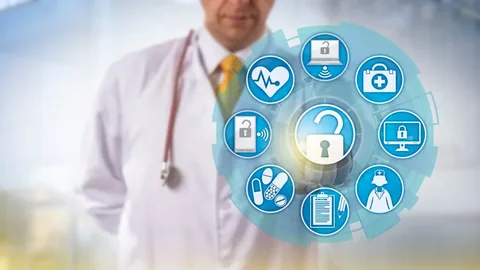In the modern age of digital health innovation, every forward-thinking health blog is discussing how smart devices are changing the landscape of home healthcare. Once limited to hospitals and clinics, essential health monitoring tools are now making their way into homes, empowering patients and caregivers to manage medical needs conveniently and confidently. These intelligent devices, backed by the Internet of Things (IoT), artificial intelligence (AI), and mobile integration, are shaping a new era of proactive, personalized, and remote care.
This article dives deep into the ways smart devices are revolutionizing home healthcare, the types of devices available, their benefits, and the future of this growing trend.
Backed by the power of the Internet of Things (IoT), artificial intelligence (AI), and mobile integration, these intelligent tools are building a future full of proactive, personalized, and remote care. Platforms like https://mindvaultt-us.com/ also offer valuable insights into emerging technologies, making it easier for readers to stay informed about the latest healthcare innovations.
What Are Smart Healthcare Devices?
Smart healthcare devices are electronic gadgets designed with sensors, connectivity, and intelligent software that allow them to gather, store, and share health data. These devices can:
-
Monitor vital signs in real time
-
Alert users or providers when abnormalities occur
-
Provide medication or therapy reminders
-
Enable remote consultations and diagnostics
Most connect through mobile apps or cloud-based platforms, giving users complete control over their health from home.
Why Home Healthcare Is Gaining Momentum
Several major shifts are driving the rapid adoption of home healthcare technologies:
-
Growing aging population with chronic health needs
-
Increased reliance on telemedicine after the pandemic
-
Rising medical costs pushing patients to find affordable alternatives
-
Advancements in IoT-enabled wearables and at-home diagnostics
This trend mirrors the growing focus on preventive, patient-centered models of care that emphasize early detection and overall wellness.
Key Smart Devices Transforming Home Healthcare
1. Smart Blood Pressure Monitors
Devices like Omron Evolv and Withings BPM Connect deliver wireless, accurate BP tracking with easy data syncing. They allow:
-
Detection of hypertension trends
-
Sharing reports with physicians
-
Early interventions based on fluctuating readings
2. Wearable Health Trackers
Wearables such as Fitbit, Apple Watch, and Garmin devices monitor:
-
Heart rate
-
Sleep patterns
-
Activity levels
-
Blood oxygen
-
ECG (on select models)
These trackers motivate healthier lifestyle choices using real-time feedback.
3. Smart Thermometers
Smart thermometers like Kinsa QuickCare can:
-
Log temperature patterns
-
Offer symptom-based recommendations
-
Monitor multiple family members conveniently
Especially helpful for families with children or chronic patients.
4. Remote Glucose Monitors
CGMs such as Dexcom G6 and FreeStyle Libre assist diabetic patients by providing:
-
Continuous glucose monitoring without finger pricks
-
Alerts during hypo/hyperglycemia
-
Data sharing with doctors
5. Smart Medication Dispensers
Tools like Hero Health ensure accurate medication management. These devices:
-
Dispense meds automatically, on schedule
-
Alert users and caregivers
-
Track adherence through apps
A vital solution for seniors or patients with complex prescriptions.
6. Home ECG and Heart Monitors
Devices like KardiaMobile offer medical-grade ECG recordings that can detect arrhythmias instantly. Users can send results to healthcare providers for quick evaluations.
Advantages of Smart Devices in Home Healthcare
✅ Empowered Patients
Users gain better self-awareness and control over their health.
✅ Real-Time Insights
Instant feedback allows quick action on abnormalities.
✅ Reduced Hospital Visits
Remote monitoring eliminates many routine checkups.
✅ Better Chronic Disease Management
Daily data helps track conditions like diabetes, hypertension, and heart issues.
✅ Stronger Caregiver Support
Data-sharing features keep caregivers and families informed at all times.
Integration with Telehealth Services
Smart devices effortlessly connect with telemedicine platforms to create streamlined healthcare experiences. For example:
-
Wearable data can be reviewed during online consultations
-
Doctors can adjust treatment plans remotely
-
Patients can upload logs ahead of appointments
This integration boosts efficiency, accuracy, and access to medical expertise.
Challenges to Consider
Despite their benefits, smart devices do come with considerations:
-
Privacy Risks: Ensuring data is secure under HIPAA/GDPR
-
Cost Barriers: Not all devices are affordable or covered by insurance
-
Tech Literacy: Older adults may need help using these tools
-
Compatibility Issues: Some devices don’t sync with EHR systems
Ongoing collaboration between health professionals and tech developers is key to overcoming these limitations.
The Role of Digital Health Content
As smart home healthcare becomes more mainstream, quality information becomes crucial. Writers, medical professionals, and health tech enthusiasts can play a pivotal role in educating the public. If you’re interested in sharing your knowledge on digital wellness trends, consider contributing to a write for us + health initiative. Your insights can help others discover the right tools for better at-home care.
The Future of Smart Home Healthcare
The road ahead is incredibly exciting! Soon, we can expect:
-
AI-powered diagnostics that predict illness
-
Smart toilets and mirrors that detect health issues
-
Voice-activated virtual assistants connected to medical devices
-
Home robots for eldercare and rehabilitation
As these technologies evolve, smart home healthcare will become not just an option—but a standard for maintaining lifelong wellness.
Final Thoughts: A Healthier Home Starts with Smart Tech
Smart devices are revolutionizing how healthcare is delivered and experienced at home. They offer a powerful combination of convenience, accuracy, and personalization, enabling patients to live healthier, more independent lives. From blood pressure monitors to medication reminders, these innovations are the building blocks of the future of healthcare.
To stay updated on the latest breakthroughs in health and home technology, follow a trusted tech blog. Whether you’re a caregiver, healthcare professional, or just someone interested in wellness tech, the future of home healthcare is right at your fingertips.



